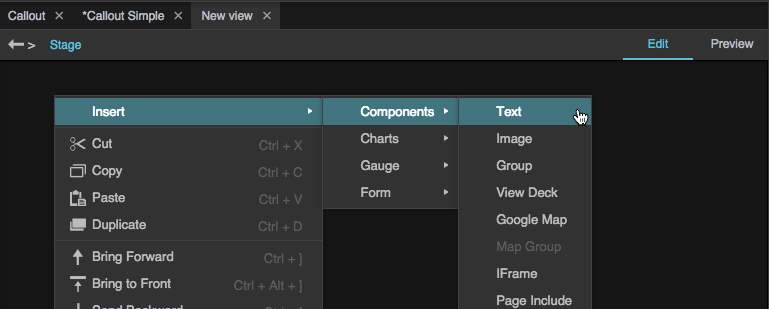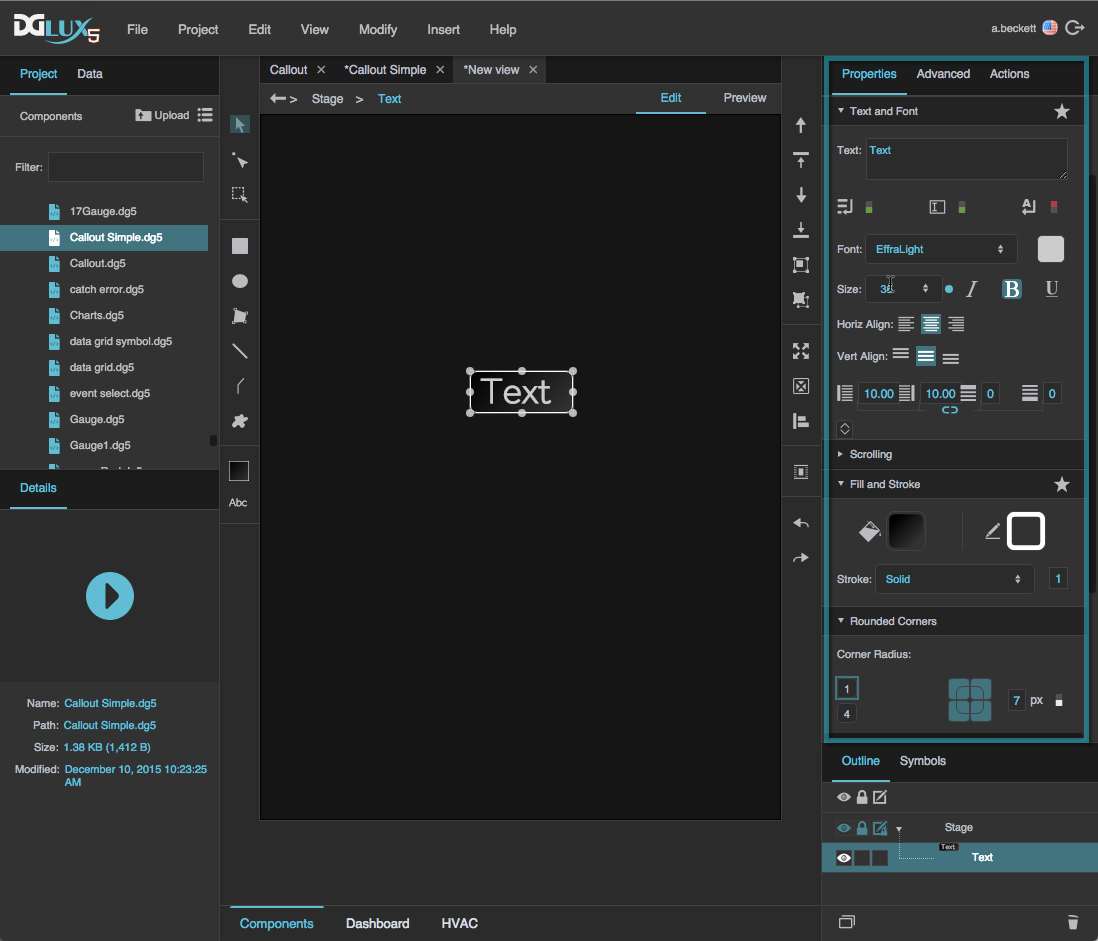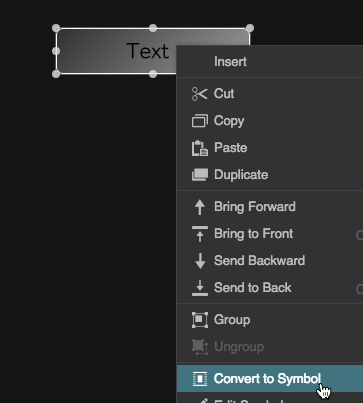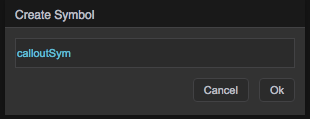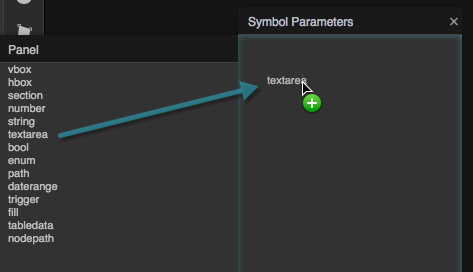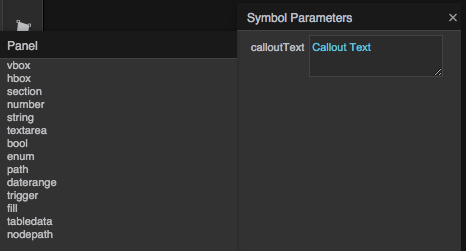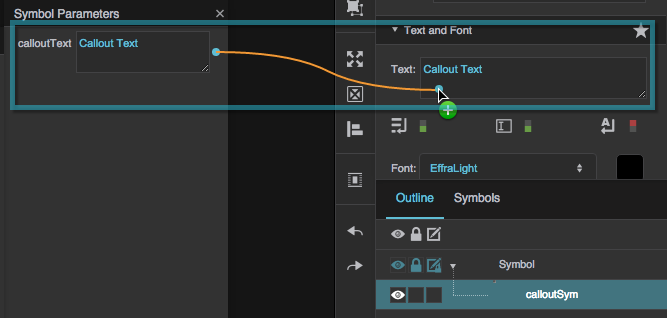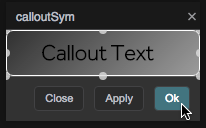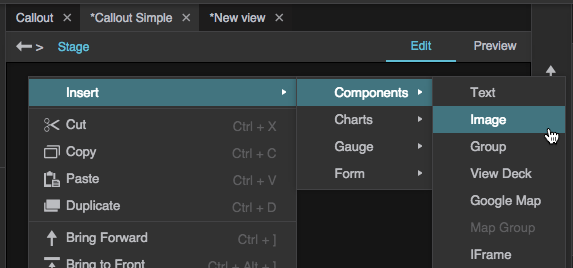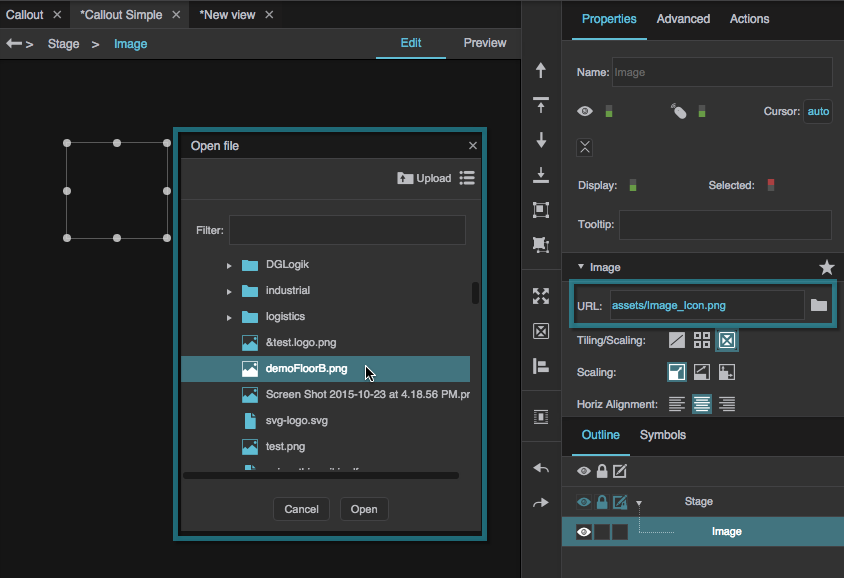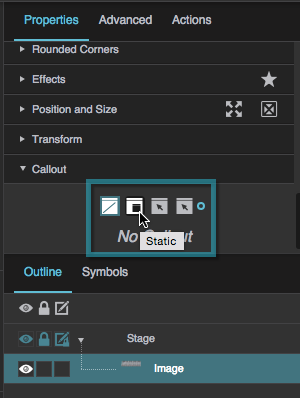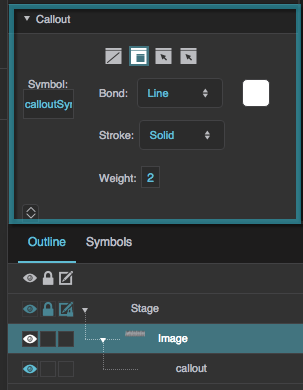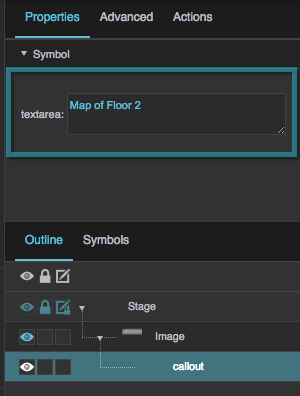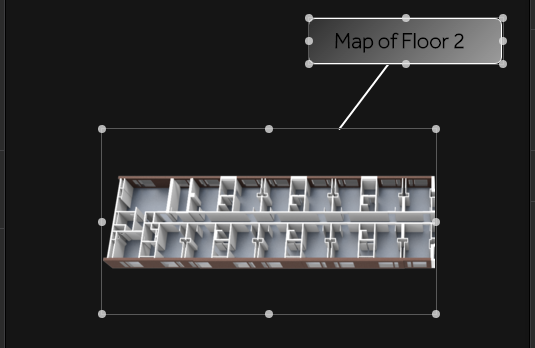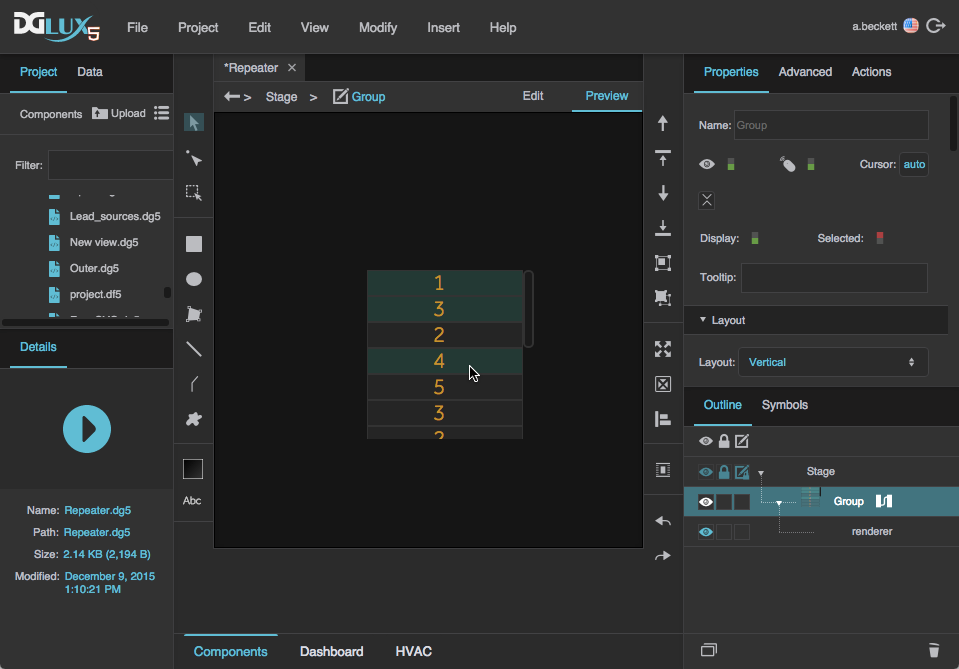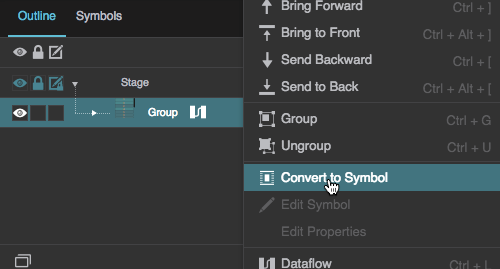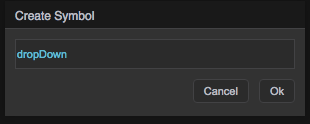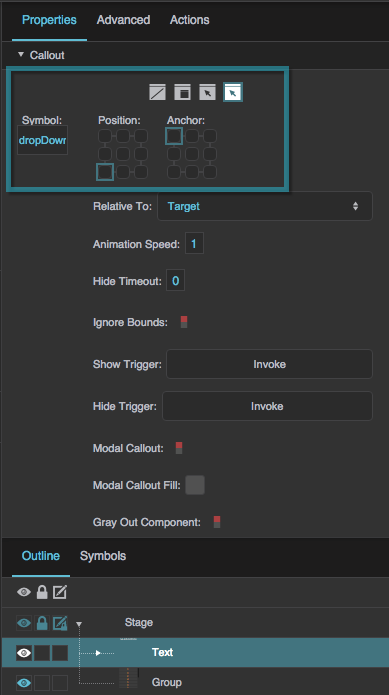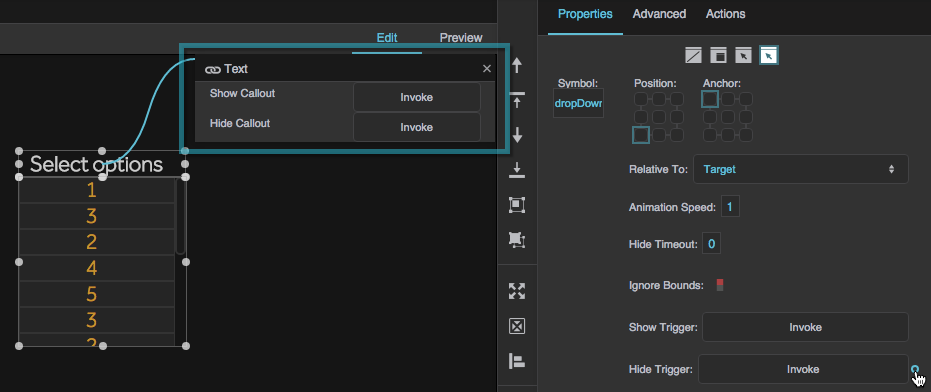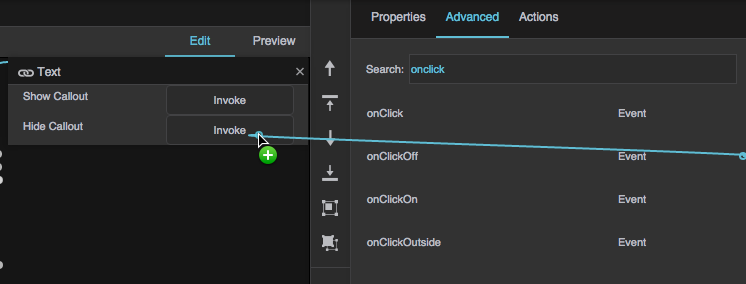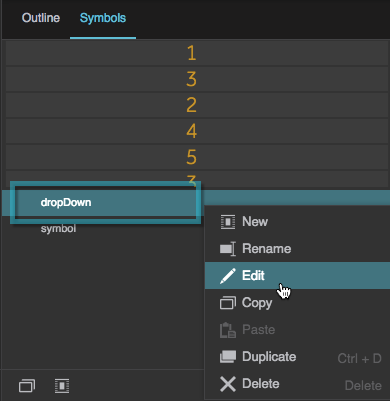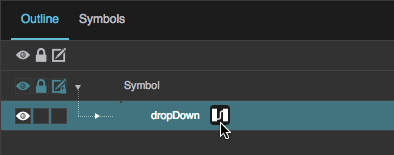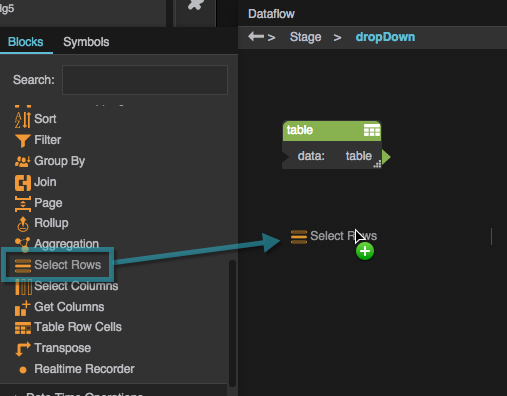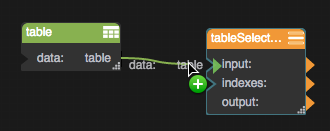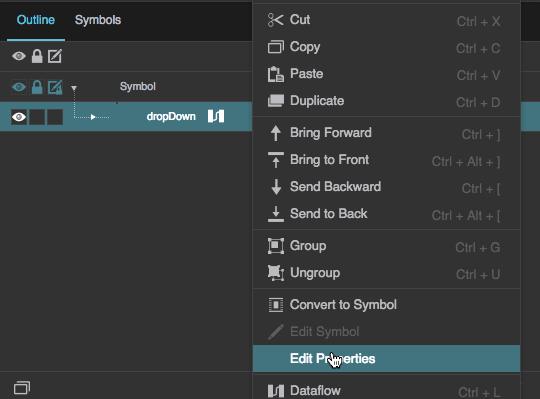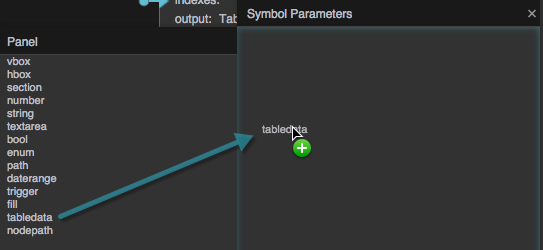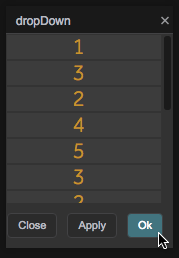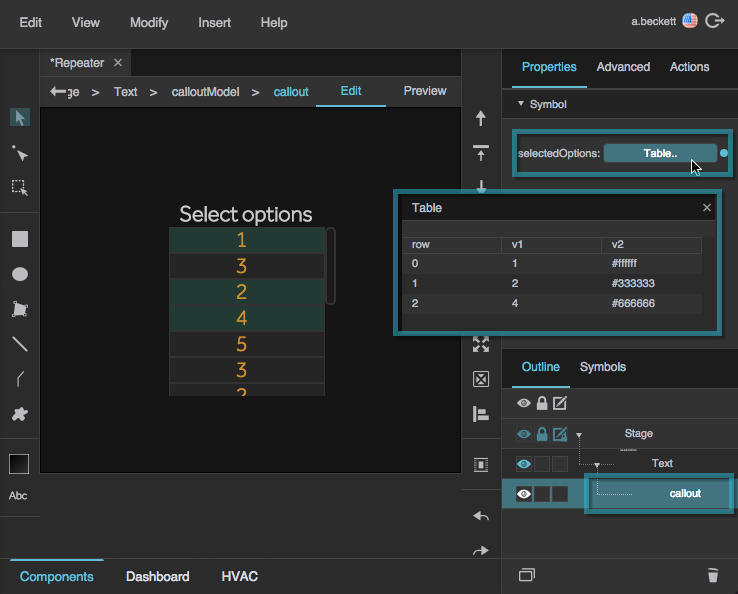Table of Contents
Callouts
A callout is a instance of a symbol that is connected to a target object. A callout can be static, in which case it always appears when the target object appears, or it can be triggered to appear based on user interaction.
Callouts are often used as labels that display key information about an object. However, the callout functionality in DGLux5 can also be used to create other effects, such as drop-down menus and pop-up dialogs.
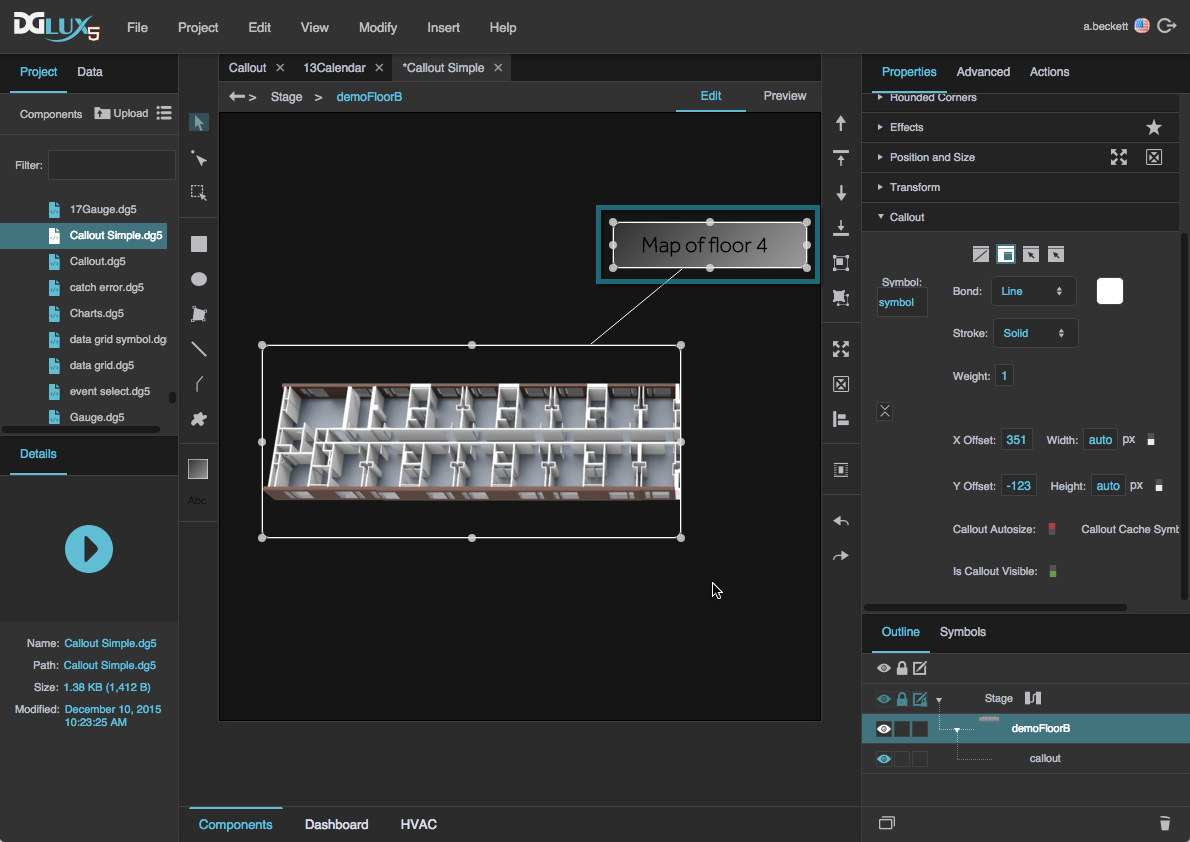
A callout functioning as a static label for an image
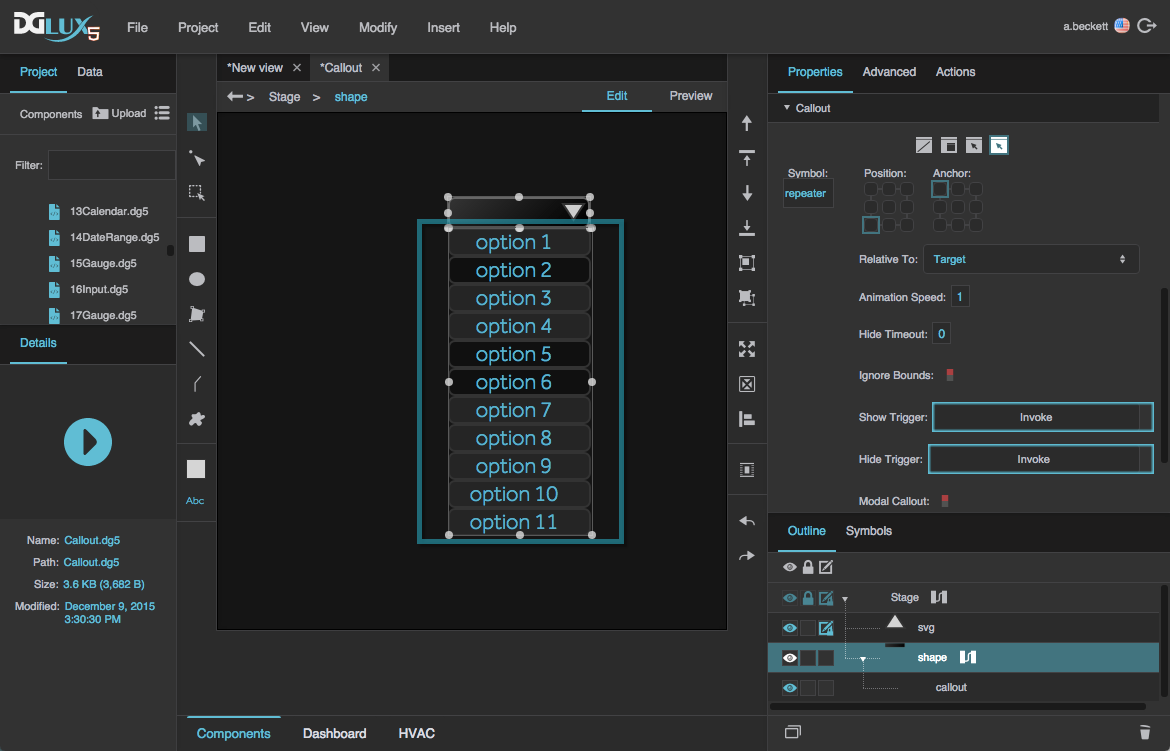
A callout functioning as a drop-down menu that appears when the shape is clicked
Video Tutorial: Introduction to Callouts
Video Tutorial: Custom Triggers with Callouts
Create a Simple Callout with Label Parameter
These steps show you how to create a simple callout that has label text that you can edit in the Property Inspector.
- Create a symbol that represents the callout:
Right-click the Stage in the Document window or Outline, and select Insert > Components > Text.
- Create parameters for the symbol:
- In the Symbols Panel, right-click calloutSym and select Edit.
- In the Outline, right-click the symbol and select Edit Properties.
With the image component selected in the Outline, for URL, click the folder icon and select an image in your project.
- Under Callout, for Symbol, type
calloutSym. - In the Outline, expand the image and select "callout."
In Edit mode, click the image in the Document window, and then drag the callout to control its placement.
